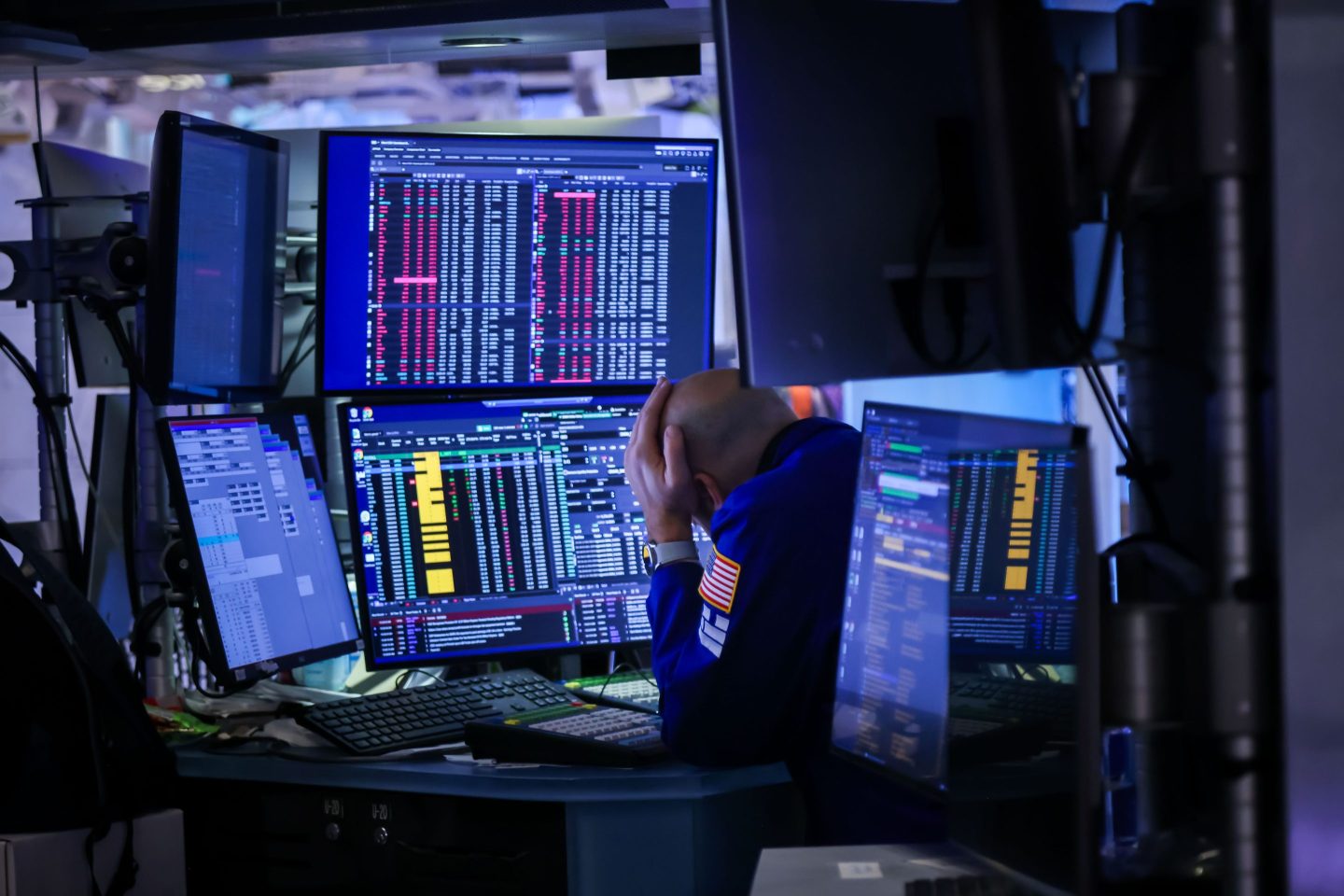A top market analyst’s warning in late October about a looming “prisoner’s dilemma” and an “AI wobble” in the stock market became chillingly prescient this week as even bullish earnings from Palantir failed to stop a dramatic tech-led selloff.
The remarks came from Tony Yoseloff, managing partner and chief investment officer at Davidson Kempner Capital Management, in conversation with Goldman Sachs’ Tony Pasquariello, for the podcast Exchanges: Great Investors, recorded on Oct. 20 and released 11 days later.
Yoseloff posed some hypothetical questions about the much-covered question of “circular financing” in the artificial intelligence (AI) space, where the same firms are funding each other that are also selling to each other.
“So the way I like to think about it is: Is there going to be an AI wobble at some point? Are investors going to be concerned about how those CapEx dollars are being invested?”
Right now, he continued, alluding to a famous game theory scenario, “there’s a little bit of a prisoner’s dilemma, let’s call it, among the larger firms. You have to invest in it because your peers are investing in it, and so if you’re left behind you’re not going to have the stronger competitive position to it.”
The investor continued by comparing today’s heavy concentration—where 10 stocks wield 40% of the S&P 500’s weight—to historic bubbles like the “Nifty Fifty” of the early 1970s and the dot-com surge at the millennium. He warned that in those eras, investors waited as long as 15 years just to recover losses after valuations cracked.
‘Big Short’ bet and the market’s response
The foreboding message arrived nearly synonymous with famed investor Michael Burry, best known for profiting from the subprime mortgage collapse, revealing a $1.1 billion short position against major AI bellwethers Nvidia and Palantir in early November. His move sent shockwaves through global markets already jittery about the narrowness of tech gains: Bank of America Research analysts noted the “Magnificent 7” tech stocks contributed more than 80% of the S&P 500’s total returns last month, heightening fears of a reversal.
Markets responded violently. Palantir shares, having soared 154% year-to-date and surging 7% after its Q3 earnings initially, reversed course and plunged nearly 8% in a single day. Asian and European indices followed suit, highlighting how tightly global sentiment is bound to a handful of AI leaders. In South Korea and Taiwan, for instance, one or two tech stocks accounted for nearly half the national index returns, illustrating Yoseloff’s “wobble” risk: Any crack in confidence could bring a swift, severe correction.
Palantir CEO Alex Karp was angry and typically outspoken as he appeared on CNBC’s “Squawk Box” the next day, when he was asked specifically about Burry’s short position. Karp responded that when he hears of short sellers attacking his company, “what I believe is clearly the most important software company in America and therefore in the world,” he said “it just is super-triggering, because these people, they could pick on any company in the world. They have to pick on the one that actually helps people, that actually has made money for the average person, that is actually supporting our war fighters.” Karp added it’s “crazy motivating” and he believes “the short sellers are constantly getting screwed by Palantir.” The company’s stock was trading down another 2% on Wednesday.
To Karp’s point about the company’s success, Palantir reported a record-setting quarter with $1.18 billion in revenue, besting estimates and boasting U.S. Government contracts up 52% over the year. Karp’s combative tone on the earnings call, touting his “anti-woke” approach and Palantir’s government synergies, did little to calm investor jitters. Analysts voiced concern that even robust sales and guidance “don’t justify its valuation” given the scale of capex and the unproven returns from AI-driven bets. To their point, Palantir has a whopping price-to-earnings ratio of more than 100x.
Karp brushed aside critics of Palantir’s strategic direction, but a closer look at the trading floor suggested his boasts were no match for market structure. Yoseloff’s warnings about the prisoner’s dilemma—where tech giants are locked in costly, self-reinforcing arms races, largely because they cannot afford not to invest—seemed vindicated as even strong results triggered a sell-the-news spiral. Top Wall Street CEOs piled on, with Goldman’s David Solomon and Morgan Stanley’s Ted Pick both projecting corrections of up to 20% for stock valuations.
With both analyst warnings and high-profile action heralding a potential regime shift in markets, the AI sector’s “wobble” may only be beginning. As Palantir’s swift reversal shows, confidence in continual AI-driven growth is no longer bulletproof. If the “prisoner’s dilemma” continues, there is a risk “dead capital” could haunt tech valuations for years to come—as happened after past bubbles.
Yet for seasoned investors like Yoseloff, the period ahead promises not just volatility, but new opportunities, as “absolute return strategies” thrive when markets finally force a separation between true winners and casualties of unmet expectations. In that sense, the fears that Palantir’s earnings could not vanquish may yet prove to be the financial world’s next big inflection point.
For this story, Coins2Day used generative AI to help with an initial draft. An editor verified the accuracy of the information before publishing.













